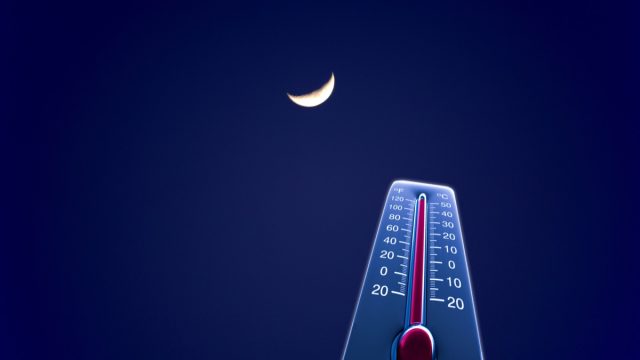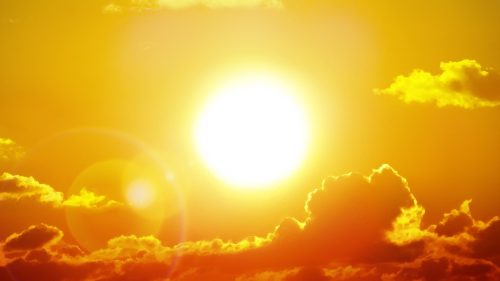Hotter and Hotter Nights Could Increase Mortality Rate by 600%, Says New Research
Risks of climate change at night are being "neglected."

Even if you think you’re aware of the major risks of climate change—for example, a warming planet can cause sea level rise, the loss of land and species, and more frequent catastrophic weather events—a new study released this week may shock you. Scientists are discovering that higher global temperatures may have residual effects not previously considered. That’s the case with new research from a global team of scientists, which found that increasingly warm nights could cause the death rate to rise by 600%. Read on to find out why.

“Ambient heat during the night may interrupt the normal physiology of sleep,” explains a press release from the University of North Carolina-Chapel Hill, whose researchers contributed to the study. “Less sleep can then lead to immune system damage and a higher risk of cardiovascular disease, chronic illnesses, inflammation, and mental health conditions.”
The scientists found that the annual number of excessively hot nights will nearly double by the year 2090 in east Asia, “increasing the burden of disease due to excessive heat that disrupts normal sleeping patterns.”

This is the first study to measure the health risks of a warming planet after dark. “The risks of increasing temperature at night were frequently neglected,” said study co-author Yuqiang Zhang, PhD, a climate scientist at UNC. “However, in our study, we found that the occurrences of hot night excess (HNE) are projected to occur more rapidly than the daily mean temperature changes. The frequency and mean intensity of hot nights would increase more than 30% and 60% by the 2100s, respectively, compared with less than 20% increase for the daily mean temperature.”

Published in the journal Lancet Planetary Health, the study was conducted by a global team of researchers in China, South Korea, Japan, Germany, and the U.S. The team estimated the number of deaths attributable to excess heat in 28 Asian cities between 1980 and 2015. They applied it to two climate change models programmed with current governments’ plans to reduce carbon in the atmosphere. Their results? “Between 2016 and 2100, the risk of death from excessively hot nights would increase nearly six-fold,” notes a press release from UNC. “This prediction is much higher than the mortality risk from daily average warming suggested by climate change models.”

“From our study, we highlight that, in assessing the disease burden due to non-optimum temperature, governments and local policymakers should consider the extra health impacts of the disproportional intra-day temperature variations,” said Haidong Kan, Ph.D., an author of the study. “A more complete health risk assessment of future climate change can help policymakers for better resource allocation and priority setting.”
RELATED: Earth is Spinning Faster than Usual and Here’s How it’s Already Affected You

“To combat the health risk raised by the temperature increases from climate change, we should design efficient ways to help people adapt,” said Zhang in the release. “Locally, heat during the night should be taken into account when designing the future heatwave warning system, especially for vulnerable populations and low-income communities who may not be able to afford the additional expense of air conditioning. Also, stronger mitigation strategies, including global collaborations, should be considered to reduce future impacts of warming.”














